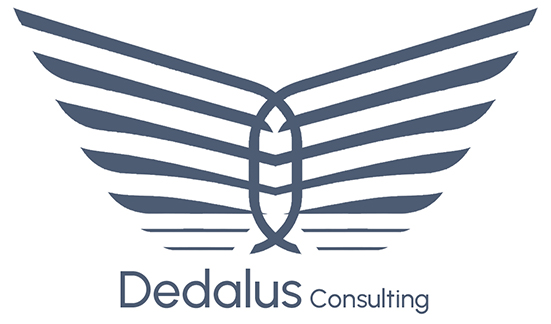Dedalus Consulting (www.dedalusconsulting.com), has recently updated Abrasives, Superabrasives & Abrasive Products–Global Markets, End-Users, Applications & Competitors: Analysis & Forecasts , the 10th edition of Dedalus’ in-depth research on the global abrasives industry, covering the market over the next five years.
According to Dedalus Consulting, the global abrasives market will surpass $21.0 billion in 2024 across all markets.
In this series, we look at the latest trends, technological advancements, and strategic growth opportunities shaping the abrasives market through 2030. This installment focuses on current trends, in particular the technological advances in sustainability.
The abrasives industry is increasingly embracing sustainability, aligning with global environmental goals and market demand for greener products and practices. This shift isn't just about regulatory compliance—it’s transforming how materials are selected, products are developed, and processes are managed to create a more sustainable future.
Trends in Eco-Friendly Abrasive Products
• Biodegradable and Natural Abrasives: The development of biodegradable abrasives made from organic materials like walnut shells and corn cobs is on the rise. These materials are suitable for less aggressive applications and break down easily, reducing environmental impact.
• Recycled and Recyclable Materials: Manufacturers are utilizing recycled glass and plastics in blasting media and designing recyclable bonded abrasives to reduce industrial waste. Companies like Norton with its participation in the How2Recycle® labeling program and Klingspor as a founding member of the Organization for the Safety of Abrasives (oSa®), which promotes adherence to strict production and testing regulations including environmental considerations - are investing in sustainability initiatives and working toward solutions that minimize the need for new raw materials.
• Eco-Friendly Bonding Agents: There's a shift toward bio-based and water-based binders that produce fewer emissions, ensuring that products meet strict environmental standards without compromising performance.
Sustainable Production Practices
• Energy-Efficient Manufacturing: Manufacturers are adopting energy-efficient production lines, utilizing renewable energy sources and AI-driven automation to optimize energy use.
• Closed-Loop Water Systems: To address water consumption, companies are implementing closed-loop systems that recycle water used in grinding and polishing, reducing both overall water usage and wastewater discharge.
• Waste Reduction Programs: Zero-waste initiatives are focused on recycling scrap abrasives and reusing materials. Saint-Gobain Abrasives is leading efforts in waste reduction and promoting circular economy principles in its operations, committing to reducing non-recovered waste by 80% by 2030.
Future Market Opportunities
The push for sustainability opens new market opportunities:
• Growing Demand for Eco-Friendly Abrasives: As industries seek to reduce their environmental footprint, demand for high-performance eco-friendly abrasives is rising, particularly in sectors like automotive and electronics.
• Circular Economy and Recycling Services: There is potential in establishing recycling programs for spent abrasives, creating new revenue streams and extending product lifecycles.
• Customized Sustainable Abrasives: Additive manufacturing (AM) offers an opportunity to produce customized, sustainable tools with minimal waste, meeting specific application needs while adhering to eco-friendly standards.
• Green Certifications: Gaining green certifications (e.g., ISO 14001) can open markets, especially in regions with strict environmental regulations. These certifications are increasingly valued by customers seeking sustainable sourcing.
• Government Incentives: Manufacturers can capitalize on government subsidies for green technologies, lowering operational costs and facilitating partnerships on eco-focused projects.
The industry's pivot toward sustainability is reshaping products and processes, making eco-friendly production a key factor in future growth. By focusing on biodegradable materials, recycled products, and energy-efficient manufacturing, companies can enhance their market positioning while contributing to a greener future.
In our next newsletter, we’ll take detail the current market dynamics shaping the abrasives industry. We'll explore the key factors driving growth, with a special focus on emerging markets such as Asia-Pacific and Latin America. Our analysis will cover regional demand trends, the impact of rapid industrialization, infrastructure development, and the rise of automotive and electronics manufacturing.
Dedalus Consulting (www.dedalusconsulting.com) has recently updated Abrasives, Superabrasives & Abrasive Products–Global Markets, End-Users, Applications & Competitors: Analysis & Forecasts, the 10th edition of Dedalus’ in-depth research on the global abrasives industry, covering the market over the next five years.
|
|
|
About Dedalus Consulting
Dedalus Consulting is a privately owned and independently operated market research publisher and consultancy.
Our research focuses on both emerging and mature markets in high-technology sectors, including tooling and machining, advanced materials, frequency control and timing, surge and circuit protection, energy and renewables, life sciences, and next generation computing. Research is continually updated through a methodology that is based on primary interviews with market participants, including manufacturers, end-users, research institutions, distribution channel representatives and service providers.
Our clientele is as diverse as the industries we serve, ranging from Fortune 500 juggernauts to pioneering academic institutions. Whether you're shaping the future of technology or driving innovation, Dedalus Consulting is your indispensable partner in navigating the complexities of today's high-tech landscape.

